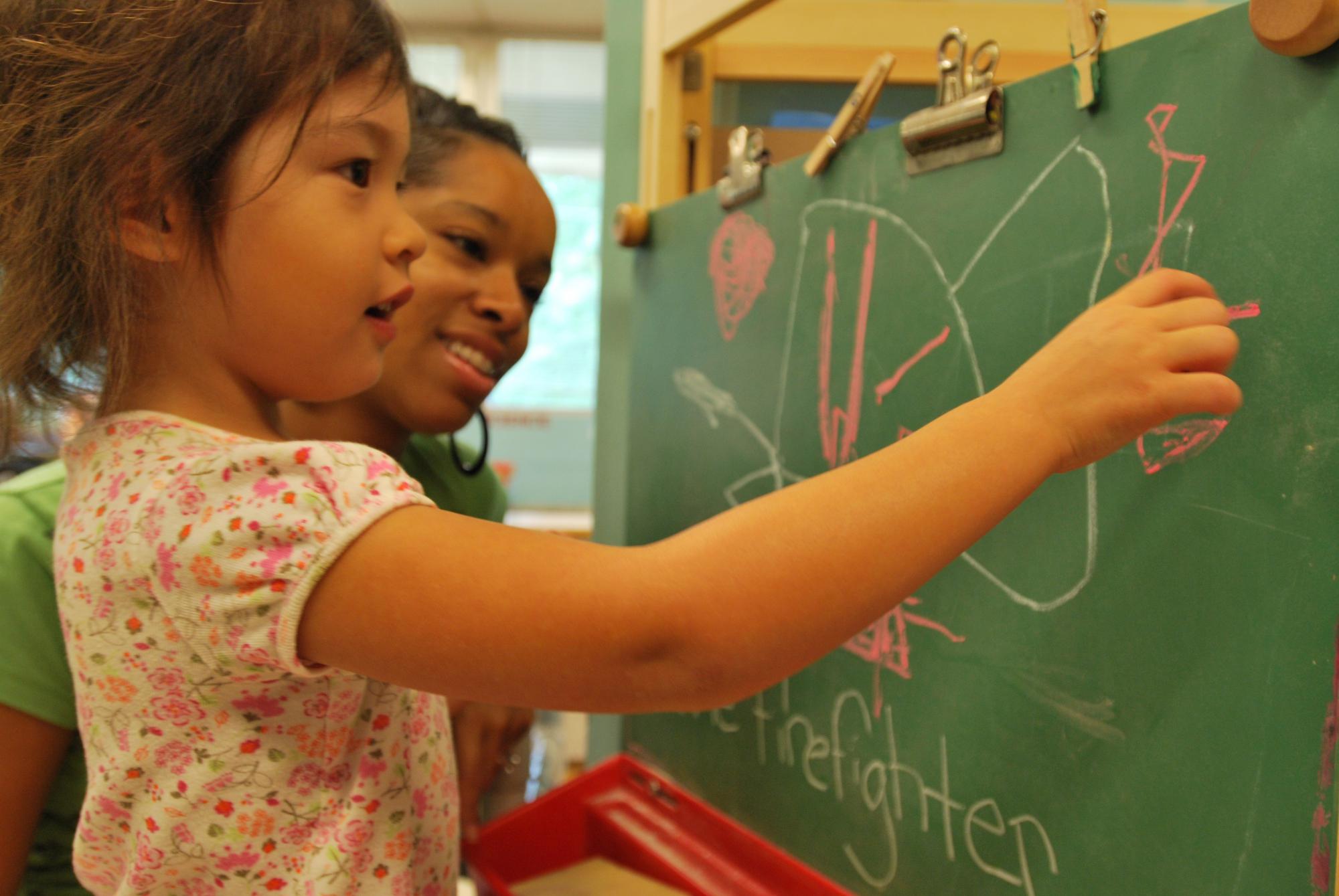The Mindful Classroom: Cutting-Edge Training for Early Childhood Educators
The National Early Childhood Inclusion Institute is offering a new workshop based on a fresh approach to help teachers improve their well-being—and their interactions with students.
 With significant implications for early childhood education, new research shows that a mindful disposition is associated with alleviating lasting physical and emotional effects of childhood adversity. The groundbreaking study is the first to examine relationships between childhood adversity, mindfulness, and adult health—and the new evidence is fueling work on a professional development and coaching approach to improve the health of teachers.
With significant implications for early childhood education, new research shows that a mindful disposition is associated with alleviating lasting physical and emotional effects of childhood adversity. The groundbreaking study is the first to examine relationships between childhood adversity, mindfulness, and adult health—and the new evidence is fueling work on a professional development and coaching approach to improve the health of teachers.
Robert Whitaker, professor of public health and pediatrics at Temple University, said the findings are especially important because adults who faced adversity as children typically experience poorer health.
“Previous research has shown that childhood traumas worsen adult health through changes in how the body responds to stress,” said Whitaker, who led the new study. He added that some people might adopt poor health behaviors, like smoking, to cope with stress.
As a visiting scholar at FPG, Whitaker collaborated with scientist Kathleen Gallagher on the study, which surveyed over 2000 adults working for Head Start. According to Gallagher, one of the study’s most striking features is its focus on the very teachers and staff who are responsible for teaching and caring for some of America’s most vulnerable children.
“It’s essential for adults working with young children to be well—physically and emotionally,” said Gallagher. “Better health enables better relationships with children, and research has long demonstrated that good relationships are crucial for children’s learning and social-emotional development.”
Not surprisingly, early childhood professionals often experience intense stress. In addition to supporting children’s development and learning, they must guide children’s behavior and social-emotional learning, support positive social interactions, and interact with similarly-stressed families and colleagues.
Whitaker explained that providing services to children who are experiencing trauma also reactivates in adults an unhealthy stress response to their own childhood adversity. “This can potentially worsen the health and functioning of these adult caregivers,” he said.
Studies have shown the health benefits of learning to be more mindful—focusing on and accepting your reactions to the present moment—but nobody had explored whether mindfulness in adulthood could offset the effects of adverse childhood experiences.
The researchers surveyed 66 Head Start programs, asking teachers and staff if they experienced specific types of adversity as children. The team also asked teachers and staff about their current health, as well as their mindfulness—the tendency in daily life to notice what happens as it happens and to be aware and accepting of their thoughts and feelings.
“Nearly one-fourth of our Head Start respondents reported three or more types of adverse childhood experiences,” said Whitaker, adding that almost 30 percent reported having three or more stress-related health conditions, such as depression, headache, or back pain.
However, Whitaker and Gallagher found that the risk of having multiple health conditions was nearly 50 percent lower among respondents with the highest level of mindfulness, compared to those with the lowest levels—even for people with multiple types of childhood adversity.
In addition, regardless of the amount of childhood adversity, Head Start workers who were more mindful also reported significantly better health behaviors, like getting enough sleep, and better functioning, including fewer days when they felt unwell mentally or physically.
“Mindfulness training may help adults, including those with a history of childhood trauma, to improve their own well-being—and to be more effective with children,” Whitaker said.
The findings compelled Whitaker and Gallagher to begin developing Be Well to Teach Well, an online professional development program designed to help teachers improve their well-being and classroom interactions.
This May, at the National Early Childhood Inclusion Institute in Chapel Hill, Gallagher will co-lead a special pre-Institute workshop based on the new approach, with longtime mindfulness instructor Karen Bluth. In this interactive workshop, participants can reflect in person on how stress from working with children and families impacts health and relationships, as well as learning more about how mindfulness contributes to well-being and positive relationships.
During the workshop, participants can explore practices that support the development of mindfulness. In addition, Gallagher and Bluth will foster opportunities to develop a personal and professional plan for integrating mindfulness into daily life and professional activities.
Registration for Gallagher and Bluth’s workshop on integrating mindfulness is separate from the full array of programming at the National Early Childhood Institute, and anyone can attend their workshop, regardless of participation in the Institute. The $50 workshop fee includes both a continental breakfast and a lunch.
Read more and register for Gallagher and Bluth’s special workshop on mindfulness.
On a related note, the Institute’s regular programming will include a session from co-keynote speaker and mindfulness guide Kate Turnbull on mindfulness training for young children with self-regulation challenges.
DS